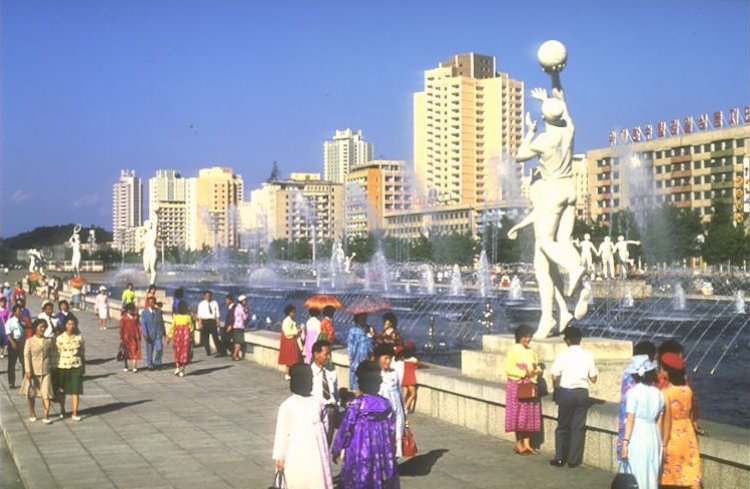By Jamshed Baruah
NEW YORK (IDN) – Taking its mandate as non-permanent member of the Security Council for 2017-2018 seriously, Kazakhstan’s Ministry of Foreign Affairs in a statement on February 12 said that it “strongly condemns” the ballistic missile launch conducted by DPRK-Democratic People’s Republic of Korea (North Korea) the same day.
The launch was “a blatant violation of the relevant UN Security Council resolution”. North Korea is barred under United Nations resolutions from using ballistic missile technology, but six sets of UN sanctions since Pyongyang’s first nuclear test in 2006 have failed to rein in its drive for atomic weapons.
The Kazakh statement explained: Being, together with Japan, the co-chairman of the 9th Conference on Article XIV of the Comprehensive Nuclear Test Ban Treaty (CTBT), as well as the chairman of the Hague Code of Conduct against Ballistic Missile Proliferation, Kazakhstan believes that extremely irresponsible actions of the DPRK have a negative impact on the nuclear disarmament process and pose a threat to both regional and global security, undermine the efforts of the vast majority of countries in the world in ensuring a nuclear weapon-free future.
“Kazakhstan is firmly convinced that the key to global security is a nuclear weapon-free world, and stands for complete prohibition of nuclear testing all over the world,” the Kazakh Foreign Ministry said.
It further called on the DPRK to return immediately to the negotiating table in the six-party format with the participation of China, Russia, the United States, the Republic of Korea (South Korea) and Japan, and to abandon completely its nuclear weapons aspirations.
A day after the Kazakh statement, the Spokesman for UN Chief António Guterres said: “The Secretary-General strongly condemns the launch of another ballistic missile by the Democratic People’s Republic of Korea on 12 February.”
“This action,” he added, “is a further troubling violation of Security Council resolutions. The Democratic People’s Republic of Korea leadership must return to full compliance with its international obligations and to the path of denuclearization.”
“The Secretary-General appeals to the international community to continue to address this situation in a united manner,” the Spokesman said.
Kazakhstan’s quick and unequivocal reaction to North Korea’s missile launch is in line with its commitment to a nuclear-weapons free world. It is in fact an important agenda the country has set itself for two-year non-permanent membership of the Security Council, which began on January 1, 2017.
In 1991, at the break-up of the Soviet Union, Kazakhstan inherited part of the former Soviet nuclear weapons arsenal, at that time the world’s fourth largest. But it renounced that arsenal and shut down the former Soviet nuclear test site at Semipalatinsk where, from 1949 to 1991, more than 450 nuclear tests were conducted resulting in contamination of large areas of land and harmful consequences for health of more than 1.5 million people.
Since independence 25 years ago, Kazakh President Nursultan Nazarbayev has made campaigning for a global nuclear disarmament a key issue of the country’s foreign policy.
In addition to creating, together with Kyrgyzstan, Tajikistan, Turkmenistan and Uzbekistan, the Central Asian Nuclear Weapon Free Zone (CANWFZ), Kazakhstan has also launched an international awareness campaign, The ATOM (Abolish Testing. Our Mission) Project whose online petition for the early entry into force of CTBT has already been signed by more than 300,000 people in over 100 countries around the world.
Altogether 183 member states of the UN have signed the Treaty and 164 have ratified. But it will enter into force only when 44 countries complete their ratification procedures. Particular attention is being paid to eight countries – China, Egypt, Iran, Israel and the U.S., which have signed the Treaty, and North Korea, India and Pakistan that have until now refused to put their signature on the CTBT.
It was at the initiative of Kazakhstan, together with a large number of sponsors and co-sponsors that the 64th session of the United Nations General Assembly on December 2, 2009 unanimously adopted resolution 64/35 declaring August 29 the International Day against Nuclear Tests.
Kazakhstan’s importance is also underlined by the country’s choice to host the international low enriched uranium bank under the auspices of the International Atomic Energy Agency (IAEA), which will start operating next year. The ‘bank’ will ensure supply of uranium for civilian purposes such as building nuclear power plants.
Of equally great importance is the Universal Declaration for the Achievement of a Nuclear-Weapons-Free World tabled by Kazakhstan and co-sponsored by 35 countries. President Nazarbayev initiated the proposal at the first Nuclear Security Summit in Washington, D.C. in April 2010. He reiterated it on September 28, 2015 at the general debate of the 70th session of the UNGA in New York.
The Kazakh Ministry of Foreign Affairs worked hard from 2010 to 2015 with all interested parties to agree on the text of the Declaration, which was finalised at the session of the UNGA First Committee held in October and November 2015.
The Declaration was not adopted unanimously but 133 countries voted for its adoption, 23 countries voted against and 28 abstained.
The document itself calls for a series of steps. First: the total elimination of nuclear weapons as the only absolute guarantee against their use or threat of use. Second: the adoption of a global multilateral and legally binding document that provides for the total elimination of nuclear weapons.
Third: the redirection of the investment of human and economic resources that now go toward the development, maintenance and modernisation of nuclear weapons into strengthening sustainable development, peace and security, as well as saving millions of people from poverty.
Finally, it calls for compliance with the norms of international law, including international humanitarian law, because of the catastrophic humanitarian consequences from any use of nuclear weapons. [IDN-InDepthNews – 13 February 2017]
Photo: Pyongyang in 1989 – Wikimedia Commons
IDN is flagship agency of the International Press Syndicate.

